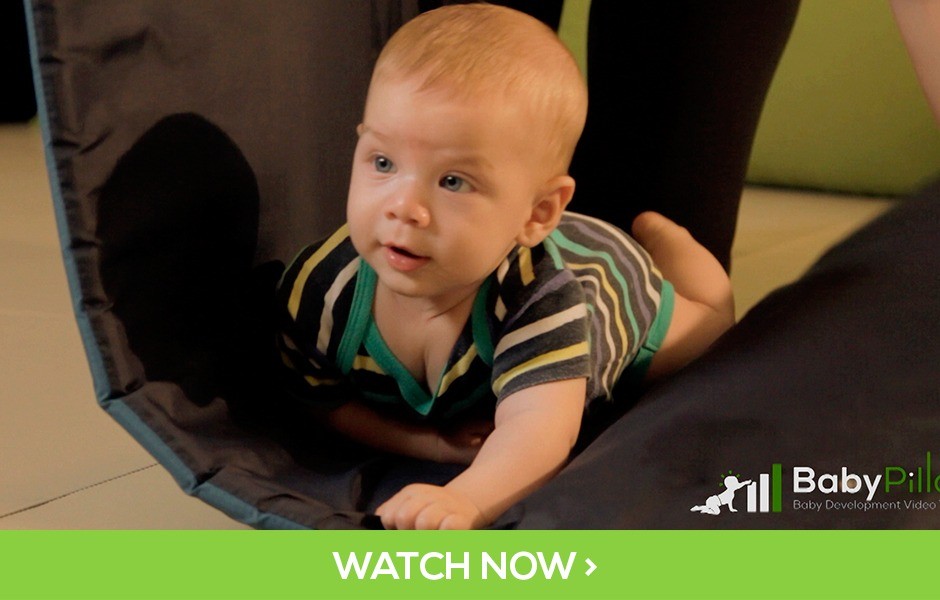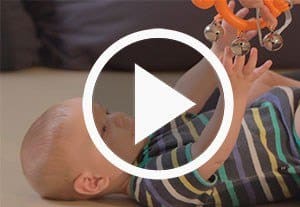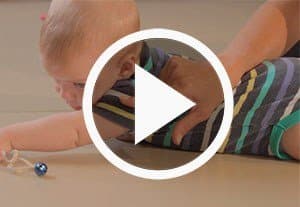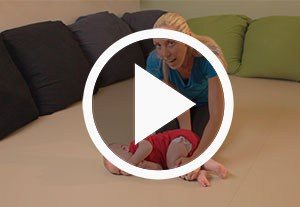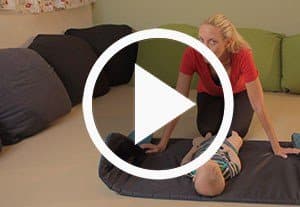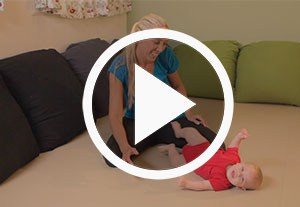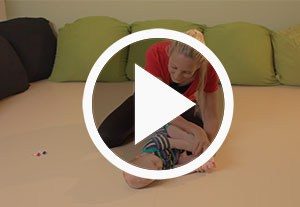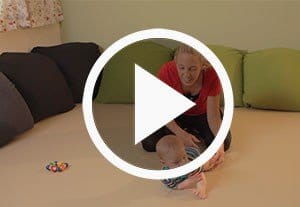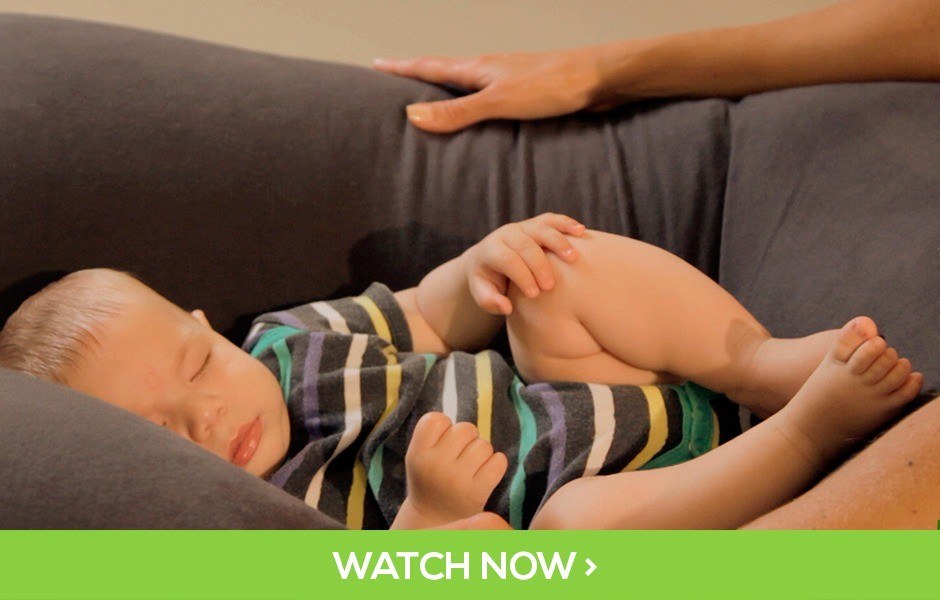Don't let the demands of work and modern life hold you back as a parent:
Navigate the challenges of parenting a 3–6-month-old with our expert-led course.

Discover practical strategies for supporting your baby's development while juggling work and other responsibilities. From enhancing bonding and communication to promoting physical growth and cognitive skills, our course covers it all.
Learn from experienced professionals and join a community of like-minded parents for support and guidance on this exciting journey and never feel alone on your journey.
Join us and transform your parenting journey with confidence and ease.
Join BabyPillars and Take the First Step Towards Being the Best Parent You Can Be - Click Here To Start
3-6 Months Baby Development Video Series – Intro
In the ages of 3 to 6 months, you will watch your baby improve his eye contact and focus. He will improve and better establish his balance system, rolling over from his back to his stomach, and from his stomach to his back. He will laugh, grab onto objects independently and so much more!
In this stage of your baby’s life, we will work on abandoning the womb-like environment which we helped simulate during his transition from the womb to the world, and we will provide him with the next secure transition to continue coping with gravity, and independent movement in space.
Age Group: 3-6 Months
Duration: 02m 44s
The basic but important milestone boost hand-eye coordination
Around the age of three to six months, when something interesting catches your baby’s eye,you may notice that their hands automatically react. Our goal is to create the appropriate conditions for your baby’s hand-eye coordination to develop, so that their ability to reach out to objects in their central line of sight is enabled. This is a basic and important skill, as your baby’s ability to focus their eyesight will act as a base for their ability to reach across the center of their body and grab something voluntarily and in later milestones, such as turning over...
The Starting Guide To Rolling Over - The Fundamentals P.2
Around three to six months, your baby’s body is ready to establish a more mature connection between their upper and lower body. A stronger communication begins to take place, as your baby explores their own body parts with the use of other body parts. Your baby’s ability to know their own body and understand how it moves and functions, will lead them to a more successful, well-rounded development of independent movement from their back to their stomach. In this video your baby will learn to straighten their arms and bring them towards the center of their body…
step-by-step: turning over, on the sides and eventually crawling
On a mat or on the floor, this exercise is meant to teach and help your baby feel comfortable laying on their side. We will incorporate touch into this process, which will expose your baby to different feelings they may experience while turning over, and eventually when crawling. Your baby will learn to lay on their side and simultaneously how to lengthen and contract their side muscles. These conditions are imperative for babies to turn over properly from stomach to back or from back to stomach in an organized way without falling…
Rolling Over mastery. Enhance Proper Rolling Over guide
This process is one that both parent and baby can share. One where you teach and guide your baby to roll over correctly, in an organized way through guided support. With a mat or a blanket, you can guide your baby through the movements, while allowing them to move their body and completely roll over on their own. This exercise is a fun way to learn, while spending quality time with your baby, and can be practiced at home, outside, and almost anywhere! In this exercise your baby will learn how to shift their weight, how to bring their arms to the center of their body, and how to cross their center…
Rolling over: Advance skills your baby needs to acquire
Rolling over is a stage of development likely to occur when you baby is three to seven months old. Rolling over from the stomach to the back or from back to stomach is dependent upon a few different skills your baby needs to acquire, before being able to successfully roll over. In this video we will see how we can teach your baby to shift their weight towards one side, to lean on their side, and eventually also how to roll over from their side, from their stomach to their back. Rolling over from the stomach to the back requires the ability to move around in space and change positions…
The starting guide to Rolling over - the Fundamentals P.1
Around three to six months, your baby’s body is ready to establish a more mature connection between their upper and lower body. A stronger communication begins to take place, as your baby explores their own body parts with the use of other body parts. Your baby’s ability to know their own body and understand how it moves and functions, will lead them to a more successful, well-rounded development of independent movement from their back to their stomach. In this video your baby will learn to straighten their arms and bring them towards the center of their body…
Advanced Rolling Over Techniques: Balance and preparation
Babies can lay comfortably both on their stomach or back. In order to shift from position to position, they must learn to roll over. Whether from their back to stomach or from stomach to back. They need to learn their ability to transfer their weight and change positions in space. In this video we will complete the following process: Start out with your baby laying on their stomach on a physical ball. (This position enables them to feel comfortable on their stomach while leaning on their elbows.) Then your baby will follow an object with their gaze, turn their head, and learn to shift their weight from side to side…
The secretes from tummy to back and back to tummy - the essentials
At this stage, your baby is beginning to shift their weight while laying on their stomach or back. In order to roll over in an organized fashion, a related motion must occur between the chest and shoulders. Chest flexibility is imperative for the rolling over process. Towards the beginning of our journey, we as parents, will teach our babies to roll over, while they remain passive, and we are active. At this stage we go through the motions for them so they can get to know what this transition feels like, and learn the capabilities of their movement from back to stomach and from stomach to back…
baby sleep techniques: Transitions, Movement and how to's
Sleep is an essential part of your baby’s development, and it’s important that while your baby sleeps, you allow some noise and movements if you should need it. This is to accustom your baby to sleeping peacefully in different conditions, so that you can continue to go about your daily life, without compromising your baby’s sleep. In the first three months of your baby’s life, you may notice that they can easily fall asleep while in motion. During their time in the womb, your baby was in constant motion, and it’s important to let them continue to experience that, and not be afraid of instilling these habits…
ENJOY THE FIRST MODULE TOTALLY FREE.
You’re here because you take your parenting seriously.
Fill out our short questionnaire and start today!
What Parents Are Saying
I wish I had found your site sooner. I would recommend it to all parents who have any problems with their small children or just want to support their children's development.”
I have reviewed some of the videos and tried them with my son, and he loves them!
I have never seen him so proud of himself!
I have learned a lot from this little quiz in regards to my baby's day by day development. It is amazing! I highly recommend taking this quiz.
I believe that your exercises are perfectly composed. I like that you approach the child's development as a whole and that - unlike other websites on similar topics - you give specific, practical tips on supporting the child's development. The format of your video tutorials is very accessible.
What Are 3-6 Month Baby Milestones And Why Do They Matter?
3-6 month baby milestones are specific skills and abilities that most babies develop during the 3-6 month age range. These milestones include things like making eye contact and smiling, reaching for and grasping objects, and rolling over.
Milestones like these are important because they are indicators of your baby's overall development and can give you insight into how they are progressing. Some milestones, like rolling over, are important for your baby's physical development and mobility. Others, like making eye contact and smiling, are important for social and emotional development.
It's important to track your baby's milestones and share any concerns you might have with a professional. While all babies develop at their own pace, reaching milestones within a typical range can be a sign that your baby is developing typically. If your baby is not reaching milestones within the typical range, it may be a sign of a delay and early intervention can be helpful.
ENJOY THE FIRST MODULE TOTALLY FREE.
You’re here because you take your parenting seriously.
Fill out our short questionnaire and start today!

